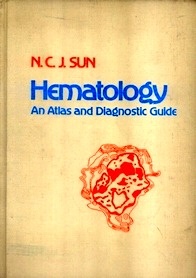Reseña o resumen
Developed for the International Association for Trauma Surgery and Intensive Care (IATSIC), the Manual of Definitive Surgical Trauma Care 6e is ideal for training all surgeons and anaesthetists who manage trauma on an infrequent basis.
The Manual is updated every 4 years and reflects the most recent developments in patient management based on new evidence-based information. Its focus is on the importance of the multidisciplinary care of the trauma surgical patient. This sixth edition has evolved, and the all-important section on the Non-Technical Skills which are required has been expanded. A significant number of the original guidelines in trauma have been archived, as they are no longer pertinent or have been superseded. The increasing (and occasionally harmful) role of non-operative management (NOM) has been recognized. The Military Environments' and Austere Environments' chapters have been substantially revised to reflect current multinational combat experience, and broadened to reflect modern asymmetrical conflicts and the increased need for humanitarian intervention including military peacekeeping in which only one side wears a uniform. Military weapons are used in major cities against the civilian population. More recently, urban, non-military populations have been the targets and victims of heavy military combat including use of ultra-sophisticated weaponry. Each situation carries its own spectrum of injury and responsibility of care.
Including website access to a selection of videos which provide an anatomic overview of surgical approaches, this resource provides a gold standard educational and training resource to help prepare the relatively fully trained surgeon to manage the difficult injuries that might present to a major trauma centre.
Professor Ken Boffard is Emeritus Professor of Surgery at the University of the Witwatersrand, Trauma Director at Milpark Hospital, Johannesburg, and previously Head of the Department of Surgery at Johannesburg Hospital and Head of the Johannesburg Hospital Trauma Unit, at the University of the Witwatersrand. He qualified in Johannesburg and trained in Surgery at the Birmingham Accident Hospital and Guy's Hospital.
He is past President of the International Society of Surgery (ISS) in Switzerland, and currently serves as Secretary-General of the Society. Past President of the International Association for Trauma Surgery and Intensive Care (IATSIC). He is a Fellow of six Surgical Colleges and has received Honorary Fellowships from the American College of Surgeons, Royal College of Surgeons of Thailand, College of Surgeons of Sri Lanka, Deutsche Gesellschaft für Orthopädie und Unfallchirurgie, the Japanese Association for the Surgery of Trauma, and the Association of Surgeons of Great Britain and Ireland. He is an elected Member of the Academy of Master Surgical Educators of the American College of Surgeons.
His passion is surgical education, and various aspects of trauma resuscitation, intensive care, and regional planning of Trauma Systems. His interests include flying (he is a licensed fixed wing and helicopter pilot), scuba diving, and aeromedical care. His research interests include coagulation, haemostasis and critical bleeding.
He is a Colonel in the South African Military Health Service. He is a Freeman of the City of London by redemption, and an elected Liveryman of the Guild of Air Pilots of London. He is married with two children.
Jonathan White is a consultant anaesthetist and intensivist working in Denmark. He studied at Cambridge University, UK, qualifying in 1998 and trained as an anaesthetist and Intensivist at Copenhagen University Hospital, becoming a specialist in Denmark in 2003. He has been affiliated to DSATC for 12 years and has held the post as Chairman of DATC organisation.
He is head of education and simulation on the ICU and has responsibility for trauma and airway management. He has 4 children and a lot of energy.
Video Contents
Preface
About the Editors
Board of Contributors
Part 1 Trauma System and Communication Principles
1. Introduction
2. Non-technical skills in Major Trauma (NOTSS): The Role of Crew Resource Management (CRM) and Communication
Part 2 Physiology and the Body's Response to Trauma
3. Resuscitation Physiology
4. Transfusion in Trauma
5. Pre-Hospital and Emergency Care
6. Damage Control
Part 3 Anatomical and Organ System Injury
7. The Neck
8. The Chest
9.
9.1 Abdomen: The Trauma Laparotomy
9.2 Abdominal Vascular Injury
9.3 Bowel, Rectum and Diaphragm
9.4 The Duodenum
9.5 The Liver and Biliary System
9.6 Pancreas
9.7 Spleen
9.8 The Urogenital System
10. The Pelvic
11. Extremity Trauma
12. Head Trauma
13. Burns
14. Special Patient Situations
Part 4 Modern Therapeutic and Diagnostic Technology
15. Minimal ACCESS Surgery in Trauma
16. Imaging in Trauma
Part 5 Specialised Aspects of Total Trauma Care
17. Critical Care of the Trauma Patient 2023
18. Trauma Anaesthesia
19. Austere Environments
20. Military Environments
21. Ballistics and Blast Injuries
22. Psychology of Trauma
23. Physical and Rehabilitation Medicine
Appendix A Trauma Systems
Appendix B Trauma Scores and Scoring Systems
Appendix C Trauma Guidelines
Appendix D The Definitive Surgical Trauma Care Course: The Definitive Anaesthetic Trauma Care Course: Course Requirements
Appendix E Definitive Surgical Trauma Care Course Core Surgical Skills
Appendix F Briefing for Operating Room Scrub Nurses
Index

